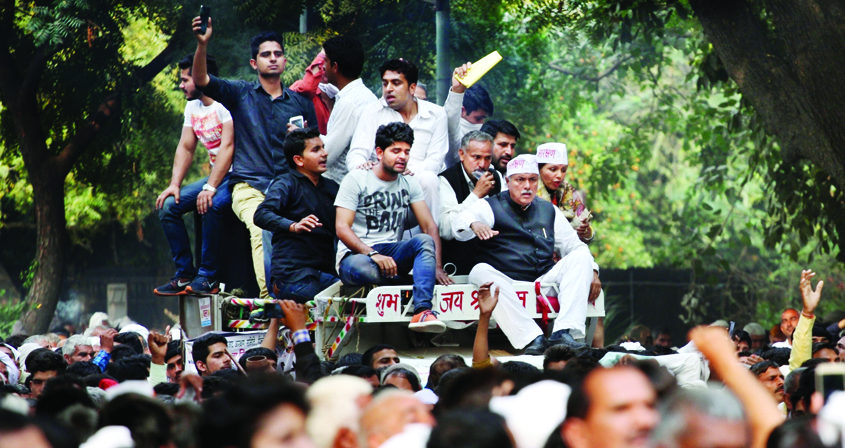Last year, similar protests by Jats in Haryana had witnessed violence across the state. Keeping in mind the possibility of violence during the Jats’ planned protest march here, sources said that the authorities concerned are on high alert and measures to prevent any possible violence are being
The All India Jat Arakshan Sangharsh Samititi (AIJASS), which is the “nodal” body coordinating the stir, said that owners of over 100,000 vehicles, including tractors and trucks, who have confirmed their participation in the protest till now from across Haryana, will enter Delhi on the day of the protest. “We will move to Delhi from Haryana on 20 March and wherever the government tries to stop us, we will claim the place there and then and sit on protest,” Yashpal Malik, president of AIJASS, said.
“The government is free to use as much security as it wants, but the ‘reservation demand agitation’ will be the biggest protest in Indian history. We are ready for a long-drawn battle and would be coming with tents and food to carry on our protests till our demand for reservations is met,” Malik said.“Over 50 lakh Jats from 13 states will be participating in a direct or indirect way in the protests, making it one of the largest political protests in the country. The Jat community is agitated over the non-fulfilment of promises made by the government, like giving reservations to the community, withdrawal of criminal cases and release of Jat youths lodged in jails,” Malik told The Sunday Guardian. Asked how Jats, a well-off, landowning community, with some members owning SUVs too , can justify their demand for reservations, Malik said: “If any individual is driving an SUV, it does not make the entire community empowered. Jats are jobless and that is a ground reality that needs to be accepted.”Malik also refused to give any guarantee that there will be no violence during the protest march.
“In a democracy, we have the right to protest and put forth our demand. From our end, the protest will be peaceful, but if we are stopped and provoked, the responsibility for any violence will be on the government and not on Jats.”
According to sociologists, several decades of changes in the Indian economy, the alleged “systematic neglect” of the rural sector’s development, low agricultural output, frequent bad monsoons, migration to urban regions, lowering of rural wages and becoming a community of underemployed, under-skilled individuals, are some of the key factors that have forced the community to assert its demand for reservation as a tool for empowerment.

